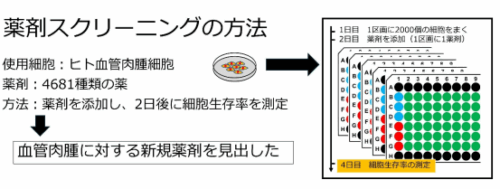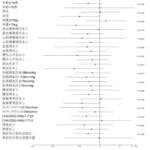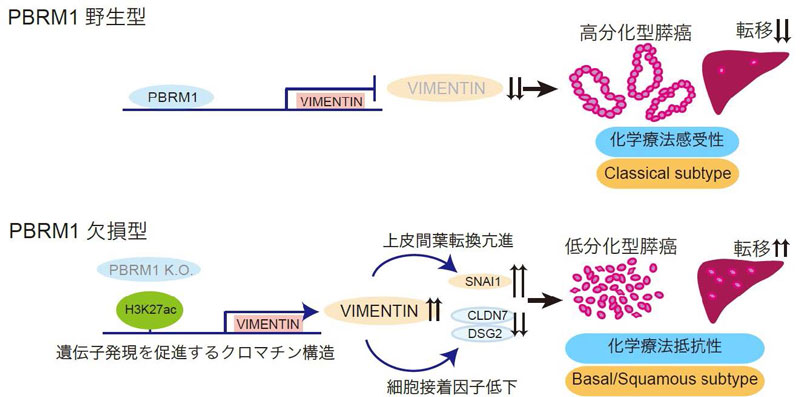2025-06-03 琉球大学

<関連情報>
- https://www.u-ryukyu.ac.jp/news/67550/
- https://www.u-ryukyu.ac.jp/wp-content/uploads/2025/06/An-FDA-approved-drug-library-screening-identifies-proteasome-inhibitors-as-selective-cytotoxic-agents-for-angiosarcoma-cells.pdf
- https://www.nature.com/articles/s41416-025-03016-2
FDA 承認薬ライブラリを ⽤いた薬剤スクリーニングにより、プロテアソーム阻害剤が⾎管⾁腫細胞に対して選択的な細胞障害作⽤を⽰す薬剤として⾒出された An FDA-approved drug library screening identifies proteasome inhibitors as selective cytotoxic agents for angiosarcoma cells
Che-Yuan Hsu,Teruki Yanagi,Kodai Miyamoto,Satoko Otsuguro,Katsumi Maenaka,Hiroshi Nishihara,Hideki Nakamura,Kenzo Takahashi & Hideyuki Ujiie
British Journal of Cancer Published:29 May 2025
DOI:https://doi.org/10.1038/s41416-025-03016-2
Abstract
Cutaneous angiosarcoma (CAS) is a life-threatening neoplasm with a 5-year survival rate of under 40% in advanced cases. As available treatments for CAS are limited, novel therapeutics must be explored. To identify potential therapeutic candidates, we conducted a drug screening analysis using an angiosarcoma cell line, HAMON. Cancer-related gene analysis revealed alterations in FGFR4, MYCN, CDKN2A, NF1, TP53, KDM6A, ATRX, MSH6, ATM, and NOTCH1 in HAMON cells. Screening of 4681 FDA-approved drugs identified four candidate compounds, with the proteasome inhibitor bortezomib selected for further study. ATP and MTT assays revealed bortezomib to be the most effective candidate against HAMON cells. Clonogenic assays revealed fewer HAMON cell colonies in the range of 1–10 nM bortezomib. DNA-content fluorescence-activated cell sorting analysis revealed a notable increase in the sub-G0/G1 phases, suggesting cell death without cell cycle arrest. Annexin V-propidium iodide staining revealed a significant increase in the percentage of early and late apoptotic cells in the bortezomib group. Mechanistically, bortezomib induced activation of NF-κB and endoplasmic reticulum stress signaling. The administration of bortezomib to immunocompromised mice implanted with HAMON cells induced apoptosis of tumor cells. This study identified the proteasome inhibitor bortezomib as a potential candidate for angiosarcoma in vitro and in vivo.


